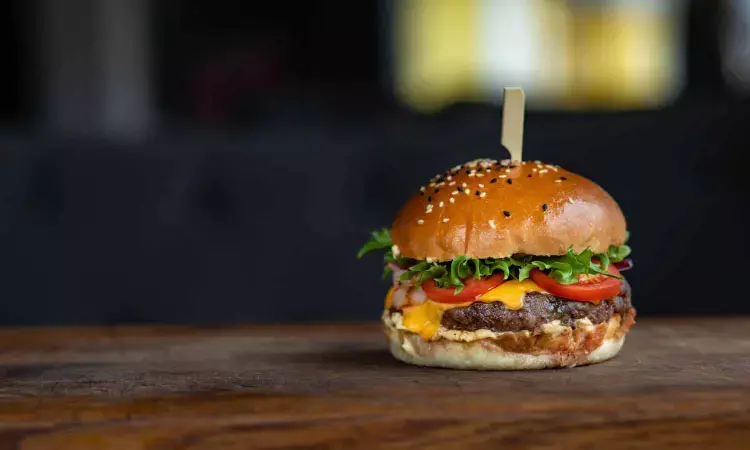- Home
- Medical news & Guidelines
- Anesthesiology
- Cardiology and CTVS
- Critical Care
- Dentistry
- Dermatology
- Diabetes and Endocrinology
- ENT
- Gastroenterology
- Medicine
- Nephrology
- Neurology
- Obstretics-Gynaecology
- Oncology
- Ophthalmology
- Orthopaedics
- Pediatrics-Neonatology
- Psychiatry
- Pulmonology
- Radiology
- Surgery
- Urology
- Laboratory Medicine
- Diet
- Nursing
- Paramedical
- Physiotherapy
- Health news
- Fact Check
- Bone Health Fact Check
- Brain Health Fact Check
- Cancer Related Fact Check
- Child Care Fact Check
- Dental and oral health fact check
- Diabetes and metabolic health fact check
- Diet and Nutrition Fact Check
- Eye and ENT Care Fact Check
- Fitness fact check
- Gut health fact check
- Heart health fact check
- Kidney health fact check
- Medical education fact check
- Men's health fact check
- Respiratory fact check
- Skin and hair care fact check
- Vaccine and Immunization fact check
- Women's health fact check
- AYUSH
- State News
- Andaman and Nicobar Islands
- Andhra Pradesh
- Arunachal Pradesh
- Assam
- Bihar
- Chandigarh
- Chattisgarh
- Dadra and Nagar Haveli
- Daman and Diu
- Delhi
- Goa
- Gujarat
- Haryana
- Himachal Pradesh
- Jammu & Kashmir
- Jharkhand
- Karnataka
- Kerala
- Ladakh
- Lakshadweep
- Madhya Pradesh
- Maharashtra
- Manipur
- Meghalaya
- Mizoram
- Nagaland
- Odisha
- Puducherry
- Punjab
- Rajasthan
- Sikkim
- Tamil Nadu
- Telangana
- Tripura
- Uttar Pradesh
- Uttrakhand
- West Bengal
- Medical Education
- Industry
Plant based burgers are made more tastier and juicier using protein-glutaminase

Burgers are popularly classified as junk foods due to its rich saturated fat contents, recent times keeping health and fitness in mind many plant based burgers were introduced into diet. however an unresolved challenge for plant-based meat analogs (PBMAs) is their lack of juiciness. Saturated fats significantly contribute to the juiciness of PBMAs, but there are concerns about the undesirable health effects related to saturated fats; thus, demand for their replacement with vegetable unsaturated oils has increased.
Although many food additives are used to reduce the leakage of unsaturated oils, this solution cannot meet the clean-label requirements that have been trending in recent years. In this study, published in PLoS ONE researchers aimed to develop better consumer-acceptable methods using protein-glutaminase (PG) to improve the juiciness of PBMA patties to meet clean-label trends.
Investigators found no significant difference between the visual surface of control and PG-treated textured vegetable proteins (TVPs). However, the microstructure of PG-treated TVP had a more rounded shape than that of the control TVP as observed under a scanning electron microscope. After grilling process, the PBMA patties composed of PG-treated TVP showed significantly higher liquid-holding capacities (a juiciness indicator) than the control patties.
This suggested that PG treatment could potentially produce PBMA patties with increased juiciness. Interestingly, after the PG-treated TVP underwent the wash process, it was found that PG treatment of TVP easily reduced the various beany off-flavor compounds by 58–85%. Moreover, the results of the in vitro protein digestion test showed that the amounts of free amino nitrogen released from PBMA patties composed of PG-treated TVP were 1.5- and 1.7-fold higher than those from control patties in the gastric and intestinal phases, respectively. These findings indicate that PG treatment of TVP could enhance the physical, sensory, and nutritional properties of PBMA patties and meet the clean-label requirements.
Reference:
Sakai K, Okada M, Yamaguchi S (2023) Protein-glutaminase improves water-/oil-holding capacity and beany off-flavor profiles of plant-based meat analogs. PLoS ONE 18(12): e0294637. https://doi.org/10.1371/journal.pone.0294637.
MSc. Neuroscience
Niveditha Subramani a MSc. Neuroscience (Faculty of Medicine) graduate from University of Madras, Chennai. Ambitious in Neuro research having worked in motor diseases and neuron apoptosis is interested in more of new upcoming research and their advancement in field of medicine. She has an engrossed skill towards writing and her roles at Medical dialogue include Sr. Content writer. Her news covers new discoveries and updates in field of medicine. She can be reached at editorial@medicaldialogues.in
Dr Kamal Kant Kohli-MBBS, DTCD- a chest specialist with more than 30 years of practice and a flair for writing clinical articles, Dr Kamal Kant Kohli joined Medical Dialogues as a Chief Editor of Medical News. Besides writing articles, as an editor, he proofreads and verifies all the medical content published on Medical Dialogues including those coming from journals, studies,medical conferences,guidelines etc. Email: drkohli@medicaldialogues.in. Contact no. 011-43720751


